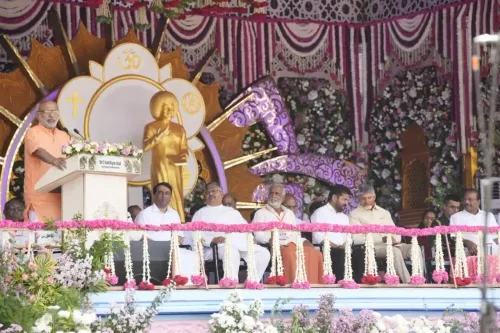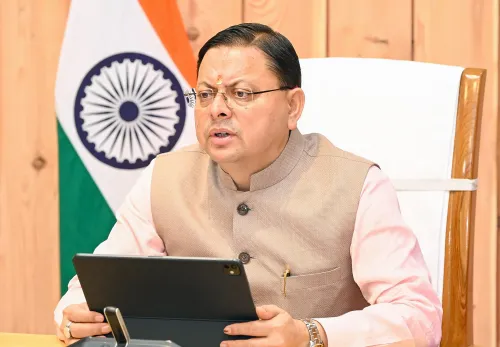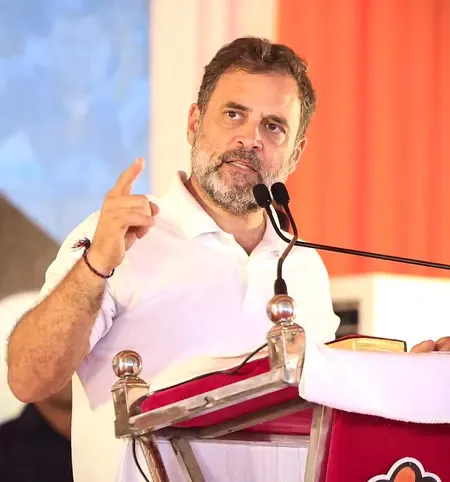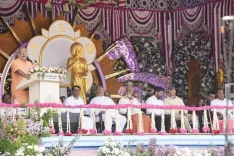Is CM Stalin's Urgent Plea to PM Modi Enough to Save TN Exports from US Tariffs?
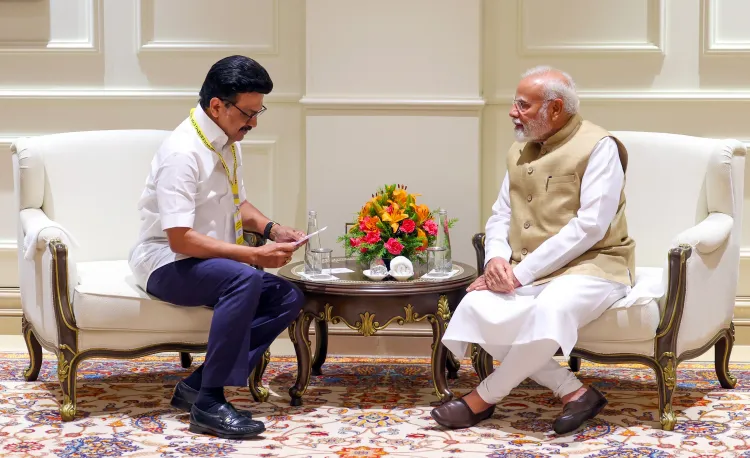
Synopsis
Key Takeaways
- Severe implications of US tariffs threaten Tamil Nadu's economy.
- 30 lakh jobs at risk if tariffs rise to 50%.
- Urgent measures proposed to mitigate impacts.
- Textile industry significantly affected.
- Call for government intervention and support.
Chennai, Aug 16 (NationPress) The Tamil Nadu government is sounding the alarm regarding the alarming effects of the United States’ 25 percent tariff on Indian exports. The government warns that a potential increase to 50 percent could severely damage the state’s manufacturing industry and result in millions of job losses.
In a comprehensive letter addressed to Prime Minister Narendra Modi, Chief Minister M.K. Stalin emphasized that Tamil Nadu’s reliance on the US market is significantly greater than that of other states in India.
While 20 percent of India’s total goods exports, valued at $433.6 billion in 2024-25, were directed to the US, Tamil Nadu contributed a staggering 31 percent of its own $52.1 billion in exports to this market.
This dependence, the Chief Minister cautioned, puts Tamil Nadu in a particularly precarious position regarding tariff fluctuations.
The sectors most at risk encompass textiles, apparel, machinery, auto components, gems and jewellery, leather, footwear, marine products, and chemicals. All of these are industries that heavily rely on labor, meaning that any drop in exports could quickly lead to widespread layoffs.
The textile sector, which makes up 28 percent of India’s exports in this category and employs approximately 75 lakh people in Tamil Nadu, is facing an especially dire situation. Officials predict that around 30 lakh jobs could be at immediate risk if tariffs rise to 50 percent.
To mitigate the impact, CM Stalin urged the central government to implement swift corrective actions. These include amending the GST inverted duty structure for the man-made fiber value chain to a standard 5 percent GST, eliminating import duties on all types of cotton, and offering collateral-free loans of up to 30 percent under the Emergency Credit Line Guarantee Scheme (ECLGS) with a 5 percent interest subsidy and a two-year moratorium on repayments.
Further requests involve increasing RoDTEP (Remission of Duties and Taxes on Exported Products) benefits to 5 percent and extending both pre and post-shipment credit facilities to all textile exports, including yarn.
Discussions with industry representatives indicate that similar issues are affecting other sectors as well.
To provide relief, CM Stalin called on the Union Government to initiate a special interest subvention scheme for exporters impacted by tariffs, expedite Free Trade Agreements (FTAs) to mitigate market risks, and unveil a financial relief package akin to the COVID-era moratorium on principal repayments.
The letter also drew comparisons to Brazil, which recently introduced tax deferrals and credits to assist its exporters.
CM Stalin warned of an unprecedented crisis looming over Tamil Nadu’s manufacturing industry, urging PM Modi to intervene urgently in consultation with ministries and industry stakeholders.
He assured the Centre of Tamil Nadu’s unwavering cooperation in executing national measures designed to protect livelihoods and maintain the competitiveness of Indian exports.


